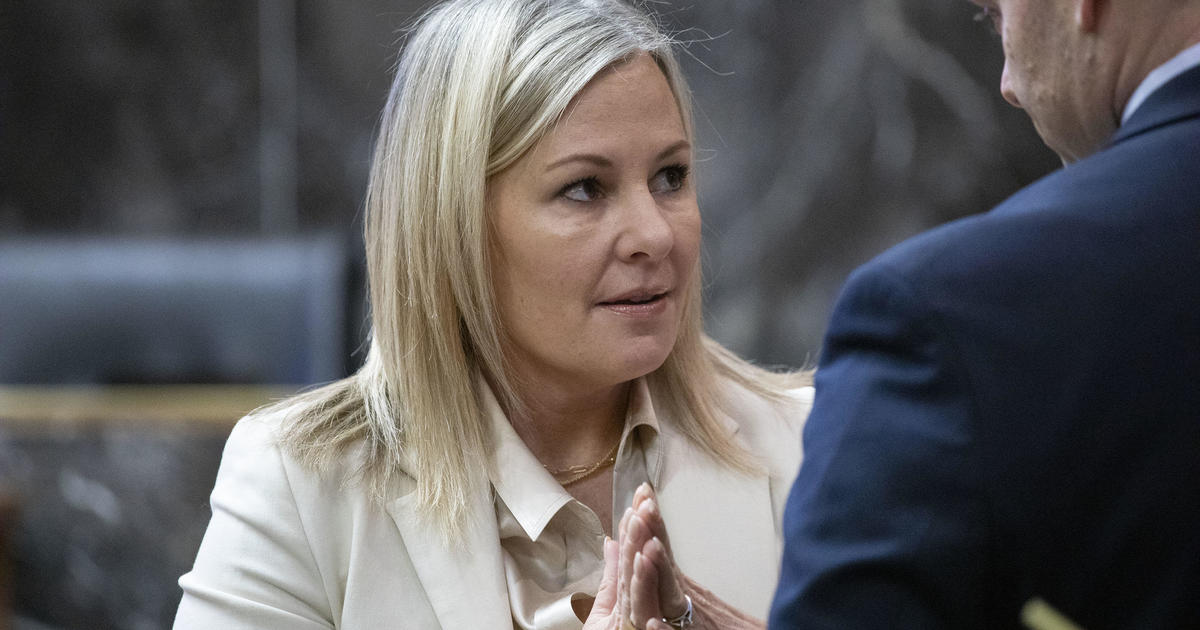Pet Parrots Die Of Highly Pathogenic Avian Influenza In Washtenaw County
(CBS DETROIT) -- State officials say pet parrots living with a family in Washtenaw County succumbed to the highly pathogenic avian influenza (HPAI) days after the virus was detected in the county.
The Michigan Department of Agriculture and Rural Development (MDARD) says it is working with the owners to finalize a flock plan to prevent any further spread.
"It's important to recognize it's very difficult for pet birds to catch avian influenza if the proper precautions are taken to stop the virus. For example, put in safeguards to not introduce any material, food, or clothing that wild birds may have contaminated," State Veterinarian, Dr. Nora Wineland, said in a statement.
 (credit: Michigan Department of Agriculture and Rural Development)
(credit: Michigan Department of Agriculture and Rural Development)
HPAI is a contagious virus that can spread from flock to flock, including wild birds, through contact with infected poultry, equipment, and the clothing and shoes of caretakers.
Pet birds in a family home typically remain indoors and are not likely to come in contact with wild birds; however, officials say they can be infected through exposed food, cage furniture or an owner's clothing.
Pet bird owners are advised not to store food or water bowls where wild birds roost or fly and disinfect or change clothes.
A day after it was found in Washtenaw County, the virus was also detected in Livingston County.
According to the U.S. Department of Agriculture, HPAI was found in commercial and backyard flocks in four counties and in wild birds in three counties.
It was first detected in Kalamazoo County in February.
 (credit: Michigan Department of Agriculture and Rural Development)
(credit: Michigan Department of Agriculture and Rural Development)
MDARD says no human cases of the virus have been detected in the United States. In addition, no birds or bird products infected will enter the food chain.
"No matter what bird species or how many birds one owns -- now is the time to protect them. Bird owners need to take every strategy to protect their flocks and reduce the spread of HPAI within our state. MDARD continues to act swiftly to reduce the spread and respond to the ongoing presence of HPAI in Michigan," Wineland said.
Whether it's a few backyard birds or a large commercial flock, following a few key steps is fundamental to protect the health and vitality of Michigan's domestic birds:
- Prevent contact between domestic and wild birds by bringing them indoors or ensuring their outdoor area is fully enclosed.
- Wash your hands before and after handling birds as well as moving between different coops.
- Disinfecting boots and other gear when moving between coops.
- Do not share equipment and other supplies between uses. If it cannot be disinfected, discard it.
- Using well or municipal water as drinking water for birds.
- Keep poultry feed secure to ensure there is no contact between the feed/feed ingredients and wild birds or rodents.
Domestic bird owners and caretakers are advised to watch for unusual deaths, a drop in egg production, a significant decrease in water consumption or an increase in sick birds.
If avian influenza is suspected, contact MDARD at 800-292-3939 (daytime) or 517-373-0440 (after hours).
For more information, go to Michigan.gov/BirdFlu, Michigan.gov/AvianInfluenza or Michigan.gov/AvianDiseases.
© 2022 CBS Broadcasting Inc. All Rights Reserved. This material may not be published, broadcast, rewritten, or redistributed.



